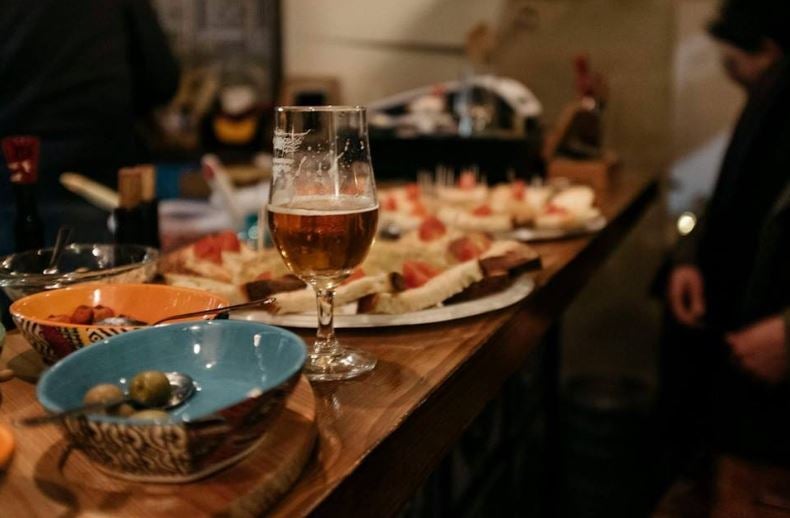Inflation hops up with rising beer and food prices
The cost of consumer goods was up by 1.9% last month, official data shows

Rising prices for food and alcohol pushed inflation higher in February, the latest official figures show.
The Consumer Price Index (CPI) rose to 1.9 per cent last month, the Office for National Statistics (ONS) said. The index is a measure of inflation calculated by tracking the price of a selected basket of goods and services.
Beer prices rose 0.6 per cent between January and February compared with a decline of 1.1 per cent last year. Annually, food and alcohol inflation hit 1.1 per cent and 5.1 per cent respectively.
The price of food was up 0.4 per cent between January and February compared with 0.1 per cent last year. Alcohol and tobacco were up 0.9 per cent increase on the month versus flat prices in February 2018.
Howard Archer, chief economic adviser at EY Item Club, said: “While February’s rise in inflation may be marginally disappointing for consumer purchasing power, it is still looking appreciably better than in mid-2018 – especially as earnings growth retained its firmer tone in January. Real earnings growth is currently 1.5 per cent, the best level since end-2016, although still appreciably below longterm norms.”
Tariffs in the event of a no-deal Brexit
Show all 15He added that different Brexit outcomes were likely to affect CPI in the coming months.
He said: “Our suspicion is that inflation will spike significantly higher if the UK leaves the EU without a deal, primarily due to a likely marked fall in sterling – even though the government has indicated that under a temporary scheme, 87 per cent of imports by value would be eligible for zero-tariff access compared to 80 per cent of imports currently being tariff-free.”
Mike Hardie, head of inflation at the ONS, said: “The rate of inflation is stable, with a modest rise in food as well as alcohol and tobacco offset by clothing and footwear prices rising by less than they did a year ago.”
Upward pressure also came from recreation and culture, as prices rose between January and February 2019 compared with a smaller rise between the same two months last year. Computer games had the biggest effect.
But clothing and footwear prices had a downward effect. Although pricetags were higher in February as usual, following the January sales, the increase was smaller than the same period last year.
Annually, clothing and footwear prices dropped 2 per cent.
At the pumps, motorists saw lower fuel costs last month, as petrol fell by 0.5p per litre on the month to 119.1p. Diesel also fell by 0.2p to 129.3p.
The Retail Prices Index (RPI), a separate measure of inflation, was 2.4 per cent, down from 2.5 per cent in January. It is the lowest since October 2016, when it was 2.2 per cent.
It comes ahead of the Bank of England’s interest rate decision on Thursday, when the Monetary Policy Committee (MPC) is widely expected to leave rates unchanged at 0.75 per cent.
KPMG UK’s chief economist Yael Selfin said the central bank may need to act more aggressively in future.
She said: “Our expectations are for inflation to average around the Bank of England’s 2 per cent target this year but to rise further in 2020, putting pressure on them to act more aggressively than markets currently anticipate.”
Subscribe to Independent Premium to bookmark this article
Want to bookmark your favourite articles and stories to read or reference later? Start your Independent Premium subscription today.

Join our commenting forum
Join thought-provoking conversations, follow other Independent readers and see their replies